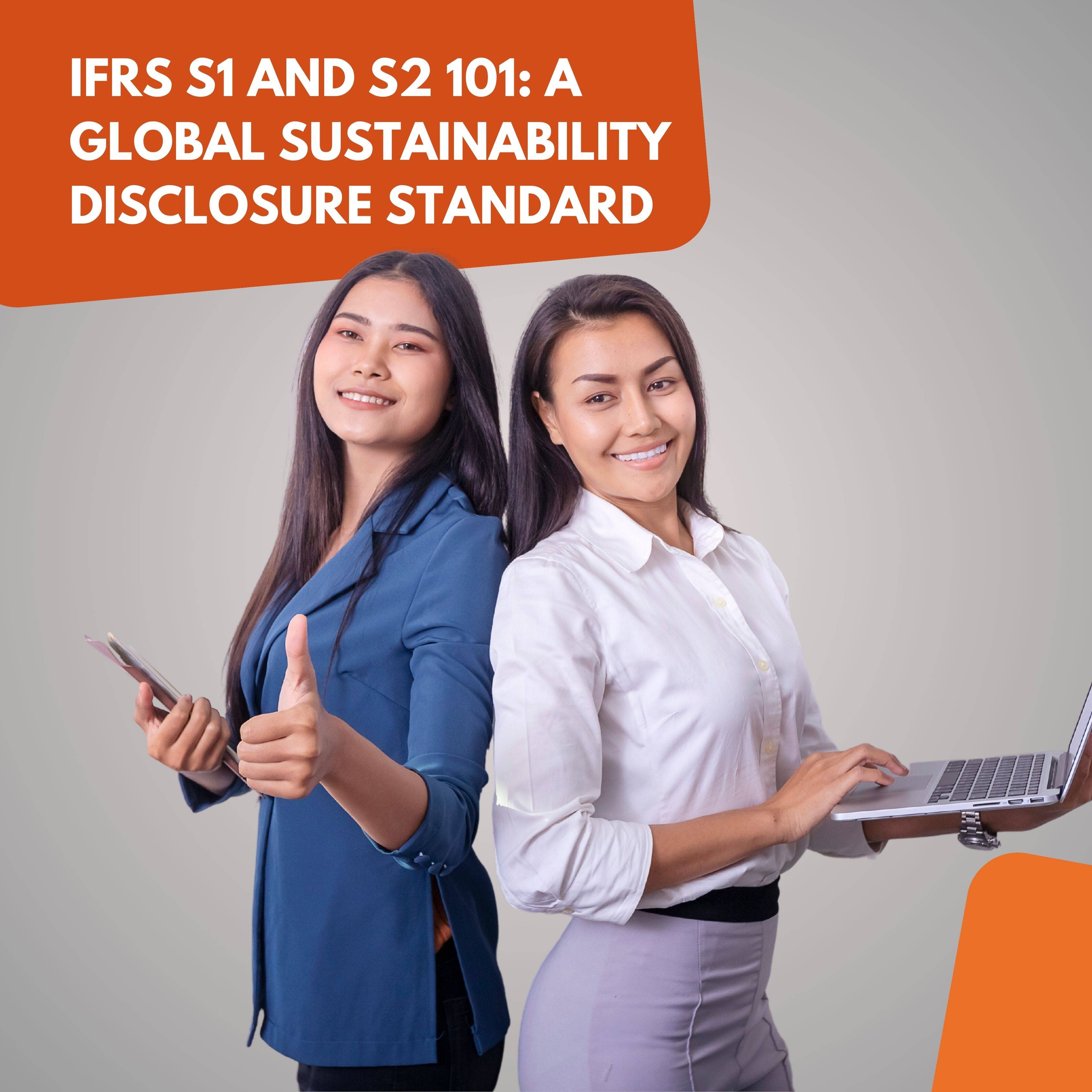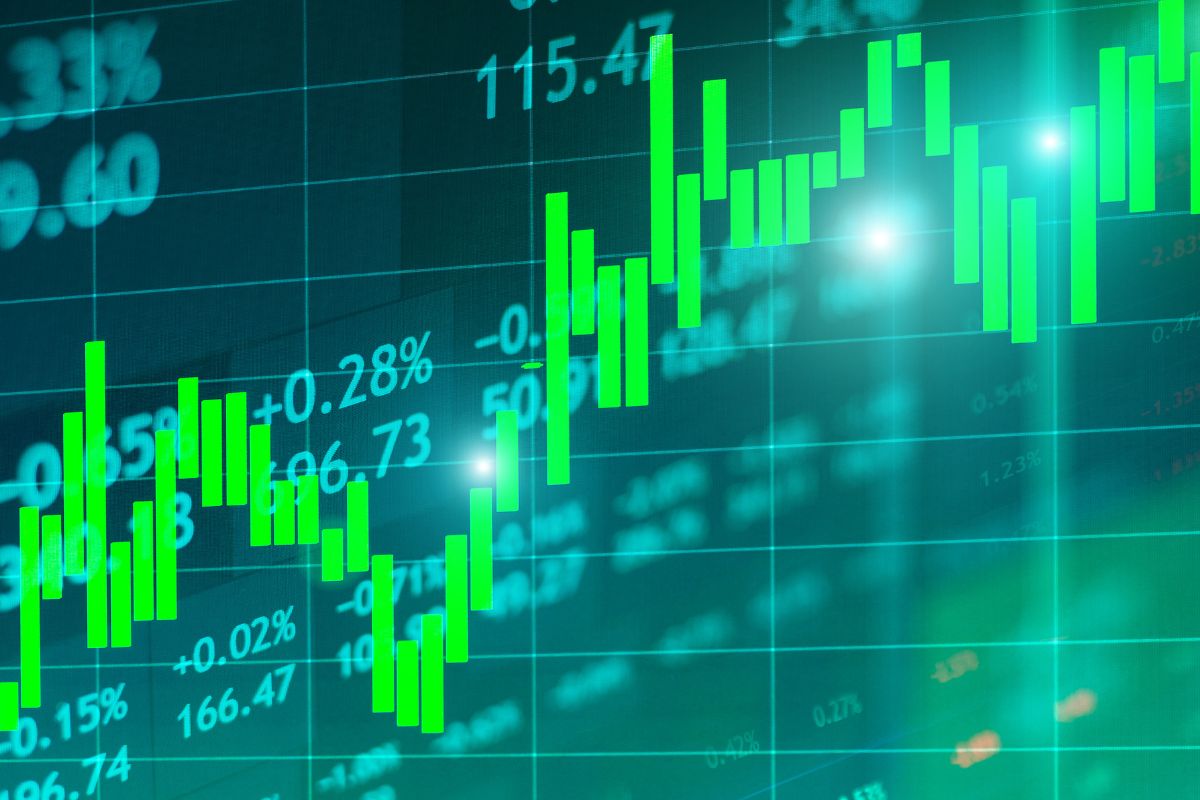IFRS S1 and S2 101: A Global Sustainability Disclosure Standard
Amidst an era of environmental uncertainties and escalating calls for corporate social responsibility, the journey towards transparency and accountability in sustainability reporting is capturing increasing attention. To address these challenges, the International Sustainability Standards Board (ISSB) has introduced new standards that are poised to revolutionize the way companies report their sustainability performance.
Two pivotal standards to emerge from this initiative are IFRS S1 and S2, which herald fresh prospects for sustainable business reporting and financial sustainability reporting. In this article, TGS AU Partners will delve into a detailed explanation of IFRS S1 and S2, uncover the objectives behind their creation, and illuminate their impact on global enterprises increasingly prioritizing sustainability facets in their business practices.
What are IFRS S1 and S2?
IFRS S1 (International Financial Reporting Standards Sustainability 1) and S2 represent newly established global sustainability reporting standards released by the International Sustainability Standards Board (ISSB), an institution formed under the umbrella of the International Financial Reporting Standards (IFRS) Foundation. These standards are designed to guide companies in crafting sustainability reports that are more structured, consistent, and transparent.

The Baseline of IFRS S1 and S2
In the face of increasingly complex global challenges related to social and environmental issues, companies worldwide are feeling the pressure to be more open and transparent in reporting their impacts on the environment and society.
Dimas Emha Amir Fikri Anas, SE., M.SA., CA., CPA, as the Partner of Audit & Assurance at TGS AU Partners Malang Branch, opines that sustainability reporting is not merely about giving, but also about receiving. When companies embrace transparency, they gain trust, engagement, and opportunities to construct a more sustainable future.
Our Service Recommendations
Sustainability reporting initiatives have taken center stage, and in an effort to guide companies toward more consistent and relevant reporting, the International Sustainability Standards Board (ISSB) has played a pivotal role by releasing IFRS S1 and S2.
The Background
The emergence of IFRS S1 and S2 stems from a response to the shifting paradigms in the realm of business and investment. Companies are no longer solely evaluated based on financial performance but also on the social, environmental, and governance impacts they create. Demands for greater transparency from various stakeholders, including investors, consumers, and the general public, have driven the need for reporting standards that provide consistency and comparability in sustainability matters.
The Strategy
The strategy behind IFRS S1 aims to provide guidance to companies in crafting Sustainable Business Reporting that encompasses social, environmental, and corporate governance aspects. This will offer a clearer understanding of how companies manage risks and opportunities related to sustainability. Meanwhile, IFRS S2, focused on Sustainable Financial Reporting, is anticipated to unveil the financial impacts of sustainability aspects, offering deeper insights into the interplay between sustainability and financial performance.
The Targets
The implementation of IFRS S2 revolves around disclosing various key metrics and targets. Crucial metrics that must be disclosed according to IFRS S2 include absolute greenhouse gas (GHG) emissions, measured in accordance with the GHG Protocol Corporate Standard. Disclosures should encompass how and why a company employs specific inputs, assumptions, and estimation techniques to measure its GHG emissions, including any changes. Specifically, S2 mandates:
Scope 1: direct emissions.
Scope 2: indirect emissions from purchased energy generation consumed by the company.
Scope 3: all other indirect emissions occurring within the company's value chain. Scope 3 GHG emissions disclosure is measured across the following 15 material categories:
-
Purchased goods and services
-
Capital goods
-
Fuel and energy-related activities
News & Articles Recommendations.
-
Upstream transportation and distribution
-
Waste generated in operations
-
Business travel
-
Employee commuting
-
Upstream leased assets
-
Downstream transportation and distribution
-
Processing of sold products
-
Use of sold products
-
End-of-life treatment of sold products
-
Downstream leased assets
-
Franchises
-
Investments
Companies with emissions associated with investments or other forms of financing (such as asset management, commercial banks, insurance) are required to report financed emissions.
Industry-based disclosures under S2 necessitate companies to provide industry-specific disclosures, although the industry-based metrics provided serve as illustrative guidance rather than mandatory requirements. An exception to this is information regarding financed emissions, which is mandated to be provided.
The ISSB has expressed an intention to make industry-based metrics mandatory in the future, subject to consultation.
Climate-Related Targets
S2 requires the disclosure of climate-related targets established by companies, as well as those mandated by law or regulations. Additionally, companies are obliged to disclose:
-
The characteristics of each target, including supplementary disclosures related to the company's gross and net GHG emission targets,
-
How the company establishes and reviews each target, and
-
The company's performance against each target.
Challenges in Implementing IFRS S1 and S2
It is undeniable that the implementation of IFRS S1 and S2 holds significance for companies. However, in practice, companies may encounter various challenges. The following are some challenges that need to be anticipated by companies before applying IFRS S1 and IFRS S2:
Challenges in Implementing IFRS S1 (Financial Statement Presentation)
-
Change in Financial Statement Format: IFRS S1 requires changes in the format of financial statements, including alterations in sequence, classification, and presentation of information. This challenge arises as companies must adapt their reporting systems to align with the new format.
-
Valuation of Property, Plant, and Equipment (PPE): IFRS S1 imposes stringent requirements regarding the assessment of PPE. Accurately measuring fair value and allocating depreciation costs can be intricate, especially if the assets have complex life cycles.
-
Lease Disclosures: IFRS S1 has strict requirements concerning the disclosure of lease contracts. Companies must fulfill detailed disclosures about lease agreements, including lease liabilities and lease assets.
Challenges in Implementing IFRS S2 (Fair Value Measurement)
-
Complexity of Valuation: IFRS S2 sets forth complex guidelines for fair value measurement. Incorrect valuation can impact a company's financial statements. Companies must have access to accurate and relevant data to avoid valuation errors.
-
Sustainability and Consistency of Valuation: Maintaining consistency in fair value measurement from period to period can be challenging. Companies need to ensure that the same methods are consistently used and that valuations are conducted meticulously to prevent undue fluctuations in financial reporting.
-
Market Data Limitations: In many cases, fair value measurement relies on available market data. However, there are situations where market data is unavailable or less reliable. This can make fair value assessment more challenging and less accurate.
-
Complex Financial Instrument Measurement: IFRS S2 also applies to complex financial instruments, such as derivatives. Assessing these instruments is often complex and requires a profound understanding of financial products.
Conclusion
IFRS S1 and S2 have been recognized as pivotal milestones in the realm of sustainability reporting. By adopting these standards, companies can provide clearer and more comprehensive information about their social, environmental, and financial impacts to stakeholders. As a result, companies will not only meet the escalating demands for sustainability reporting but also foster greater transparency and accountability in global business practices.
News & Articles Recommendations.





